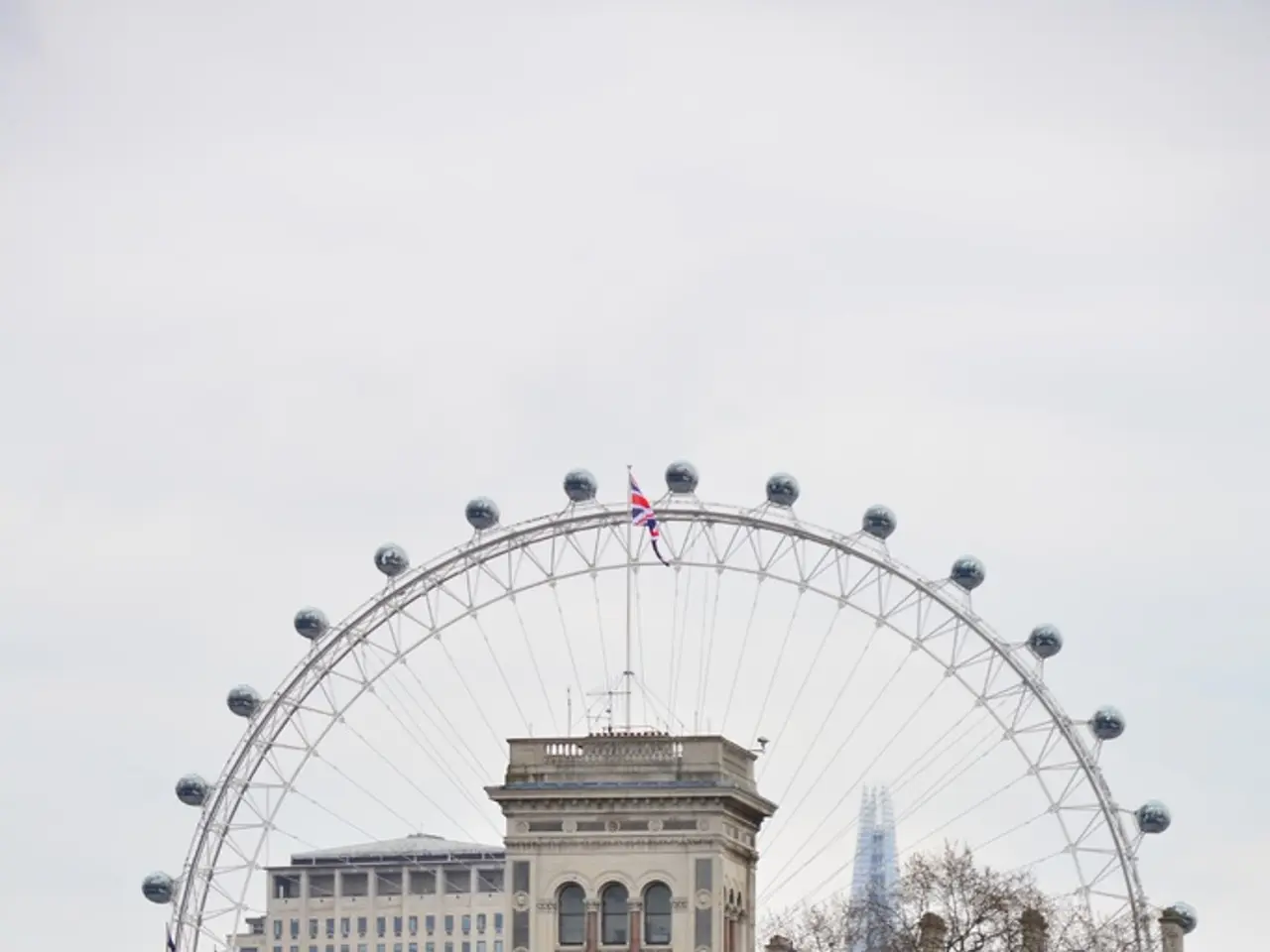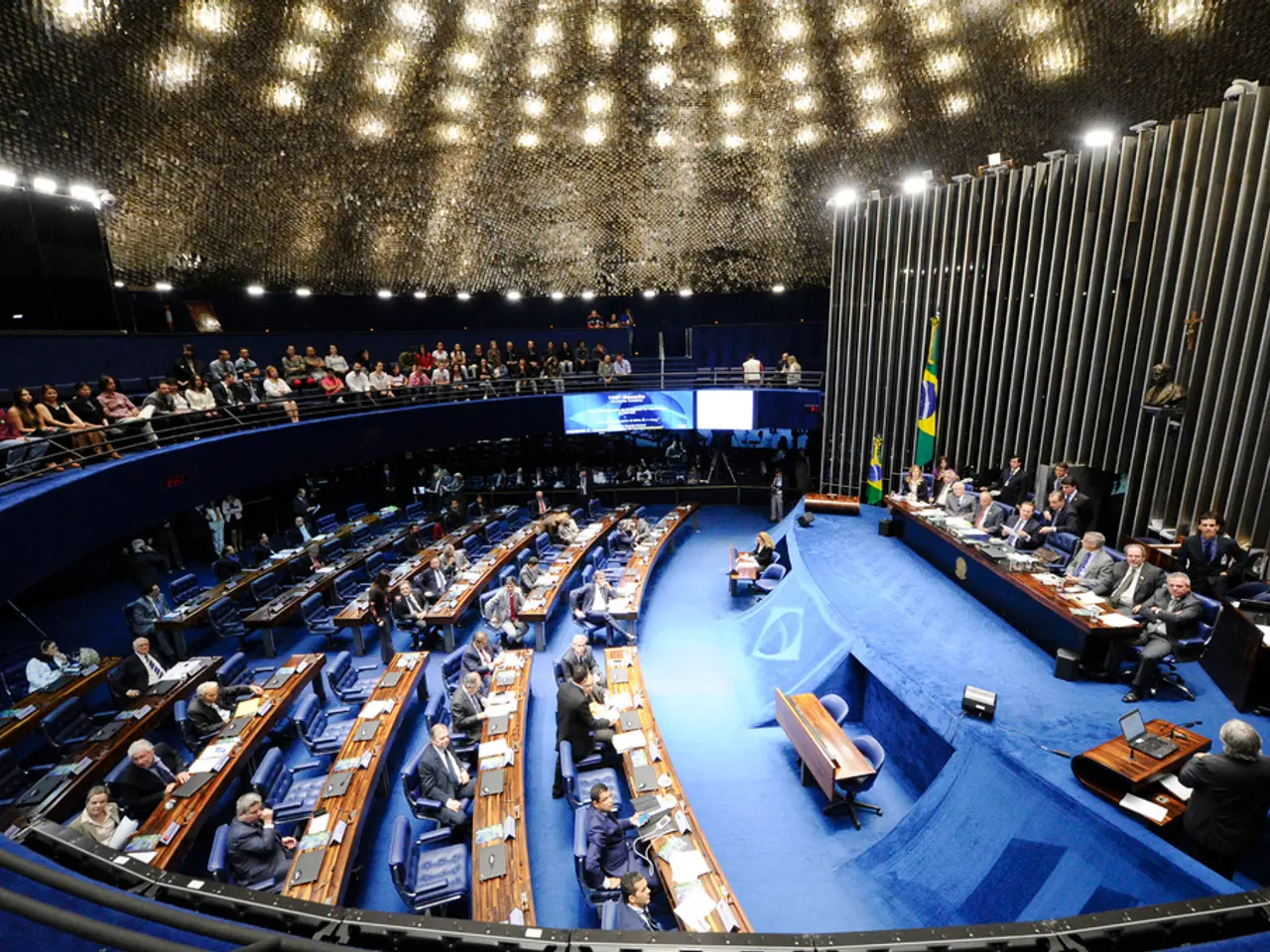International organization BRICS urges wealthy nations to provide financial assistance for global climate change transformation
In the bustling city of Rio de Janeiro, the BRICS nations—Brazil, Russia, India, China, and South Africa—gathered for their summit, highlighting the influence of the 11-member countries that collectively represent 40% of global production.
The group, known for its pragmatic approach, took a distinctive stance on climate financing, fossil fuels, and related policies.
Emphasizing the critical role of fossil fuels in economic development, particularly for developing countries within the bloc, the BRICS leaders defended their continued use as necessary for ongoing growth and development, pushing back against calls for an immediate phase-out.
In terms of climate mitigation, the BRICS bloc is mobilizing massive efforts, aiming to unlock $1.3 trillion in climate finance by 2035. The New Development Bank (NDB), their multilateral development bank, has allocated about $40 billion to climate projects since 2023, focusing on green infrastructure such as solar and wind projects.
The BRICS countries consistently urge wealthy developed countries to fund global climate action, especially the energy transition in poorer nations, viewing this financial support as essential to achieving just and equitable pathways toward climate mitigation.
However, the group expressed opposition to carbon border taxes and some Western-driven deforestation laws, which they perceive as protectionist measures that could harm their economic interests. Instead, they emphasize the need for collaborative, equitable global frameworks that do not penalize developing economies.
Environmental groups like Greenpeace have called on BRICS to step up with strong 2035 climate action plans, accelerate fossil fuel transitions aligned with the 1.5°C target, and deliver transformative forest protection measures at COP30.
Amidst these discussions, Brazilian Environment Minister Marina Silva voiced concerns about the contradictions around the world, specifically referring to plans to extract oil off the Amazon rainforest coast. Brazilian President Luiz Inácio Lula da Silva compared the BRICS to the Non-Aligned Movement of the Cold War era, and the summit marked the first time Indonesia was included as a member, indicating the rapid expansion of the group.
The leaders of the BRICS group are demanding that wealthy nations finance global emissions mitigation. Brazilian President Luiz Inácio Lula da Silva emphasized the importance of the Global South in the fight against global warming.
On a political note, Chinese President Xi Jinping sent Premier Li Qiang to the BRICS summit instead of attending personally, potentially diminishing the political weight of the meeting. The BRICS leaders did not explicitly criticize U.S. military and commercial policy in their joint statement, but pushed for reform of multilateral institutions currently dominated by Americans and Europeans.
Only China and Russia supported the inclusion of Brazil and India in a reformed UN Security Council. The leaders of India and South Africa met in Rio to discuss economic and geopolitical tensions.
The BRICS summit did not announce any specific decisions or agreements regarding climate change or emissions mitigation. However, the group's collective influence and commitment to climate finance and a just energy transition make it a significant player in global climate negotiations.
- Amidst the BRICS summit discussions, the leaders of the group unanimously called upon wealthy nations to fully fund climate action, particularly the energy transition in the developing world, considering it essential for achieving a just and equitable pathway towards climate mitigation.
- In the realm of policy and legislation, the BRICS members emphasized the need for collaborative global frameworks that avoid penalizing developing economies, publically opposing carbon border taxes and certain Western-driven deforestation laws that they perceive as protectionist measures.
- Against the backdrop of debates on climate change and emissions mitigation, India and South Africa engaged in a meeting during the BRICS summit to discuss economic and geopolitical tensions, signaling their alliance on such matters and highlighting the political significance of the environmental-science-focused group within global policy contexts.






